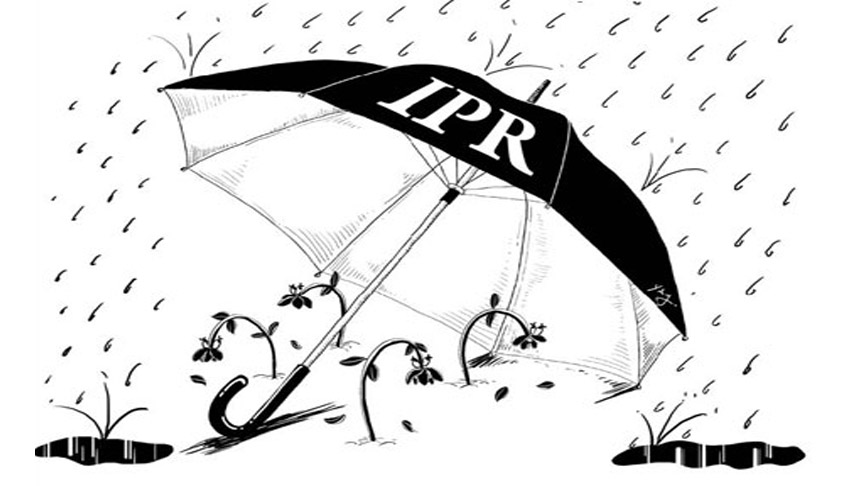Specialized Intellectual Property Enforcement in China: Implications for Indian Companies
Dr. V.K. Unni
6 Sept 2017 8:26 PM IST

China’s attempt to emerge as a key Intellectual Property (IP) hub began in 2008 with its formulation of the Outline of National IP Strategy (“IP Strategy”). This provided for a roadmap that will enable China to become a nation capable of creating, utilising and protecting IP by 2020. As part of executing this strategy China indulged in a number of judicial reforms to strengthen IP protection that included the establishment of a centralized jurisdiction over some hi-tech patent litigation, setting up a “three-in-one” adjudication for civil, administrative and criminal IP cases under a single tribunal etc.
Since the framing of this well-thought IP Strategy, the Chinese IP system has witnessed some path-breaking changes. They include constitution of specialized IP Courts in Beijing, Shanghai and Guangzhou by 2014 and creation of four new specialized IP Tribunals in Nanjing, Suzhou, Chengdu and Wuhan by early 2017. The setting up of these three IP Courts has led to substantial progress in IP enforcement. These courts have the jurisdiction to try cases involving trade/technical secrets, patents, computer software, plant varieties, integrated circuit layout designs, and also disputes relating to protection of well-known trademarks and antitrust issues. These IP courts will have original /first instance jurisdiction over IP disputes which are technology-related, hear appeals against decisions of local courts on trade mark and copyright matters. Apart from this the Beijing IP Court can also review decisions of IP Administrative Authorities.
In the last three years these courts have been fairly successful in creating an ecosystem intended to foster and protect IP by awarding damages for infringements at a much higher rate than those granted before 2014. In December 2016 The IP Court in Beijing issued its judgment on a patent infringement case between Watchdata and Hengbao, two Chinese domestic companies with unprecedented damages of RMB 50 million, ($7.5 million). Such high damages was possible because the IP Courts have lessened the burden of proof on the plaintiff in cases wherein the plaintiff has exhausted reasonable efforts to show the infringer’s profits obtained from the alleged infringement. After the plaintiff fulfills this step, the burden will be shifted to the defendant and the court can determine the damages by relying upon the plaintiff’s claim and evidence to demonstrate the actual gain made by the infringer. The IP Courts also provide for various provisional measures like preliminary injunction as well as evidence preservation which are traditionally difficult to obtain in China. As a result now many IP owners approach these courts for obtaining these provisional measures. Decisions from the IP Courts can be appealed before the High People’s Court in the respective locations. The high level of success witnessed by the IP Courts may eventually lead to the establishment of a Court of Appeals for IP at the national level in future which may be similar to the Court of Appeals for the Federal Circuit of US.
Apart from the three IP Courts, China has also set up four IP Tribunals in 2017. These specialized IP Tribunals located in the four most important provinces in eastern, middle and western parts of China are attached to the intermediate courts of the respective cities. The specialized IP Tribunals share many common features with IP Courts for e.g. both are placed at the intermediate level in the hierarchy of Chinese courts, both deal with similar subject matter etc. However there is a crucial difference also, while the IP Courts in cities like Beijing and Shanghai can exercise jurisdiction only over IP disputes within their own cities, each of the four IP Tribunals is empowered with cross-regional jurisdiction that will cover the entire province or multiple cities within that province.
With the setting up of the three specialized IP Courts and the four IP tribunals China has undoubtedly signaled to the global community of its intention to enforce IP in an aggressive manner. This is vindicated through the award of exorbitant damages, granting provisional measures like injunctions at a much faster pace etc.
The developments in the last three years will certainly bring good news for MNCs who had a tough time to protect their valuable IP in China. It has been reported that during 2015 in the 63 IP disputes filed with the Beijing IP Court where foreigners were complainants, all the cases were won by foreigners. This may be good news to some Indian companies also. Last year Jaguar Land Rover owned by Tata Motors sued Chinese automaker Jiangling Motor for allegedly copying the design of its Range Rover Evoque and using in its model Landwind X7. Since the design patents of both companies were cancelled by the State Intellectual Property Office, the litigation before the court is only pertaining to unfair competition and copyright violation. Unfortunately the subject matter in this dispute does not fall under the purview of the new specialized IP Courts and this dispute will be heard at the first instance by the Basic People’s Court.
Since its formulation in 2008 China’s IP Strategy has come long way in recognizing the importance of IP protection in the overall economic landscape. The setting up of the specialized IP Courts and Tribunals has sent the right message to the global IP community about the seriousness of Chinese policy makers towards unbiased enforcement. In the coming years the global community will be keeping a close watch on the performance of these specialized IP bodies while evaluating the success of China’s IP Strategy. The road ahead is definitely bumpy but China has got a very good start.
Dr. V.K. Unni is a Professor at Indian Institute of Management ,Calcutta.[The opinions expressed in this article are the personal opinions of the author. The facts and opinions appearing in the article do not reflect the views of LiveLaw and LiveLaw does not assume any responsibility or liability for the same]


